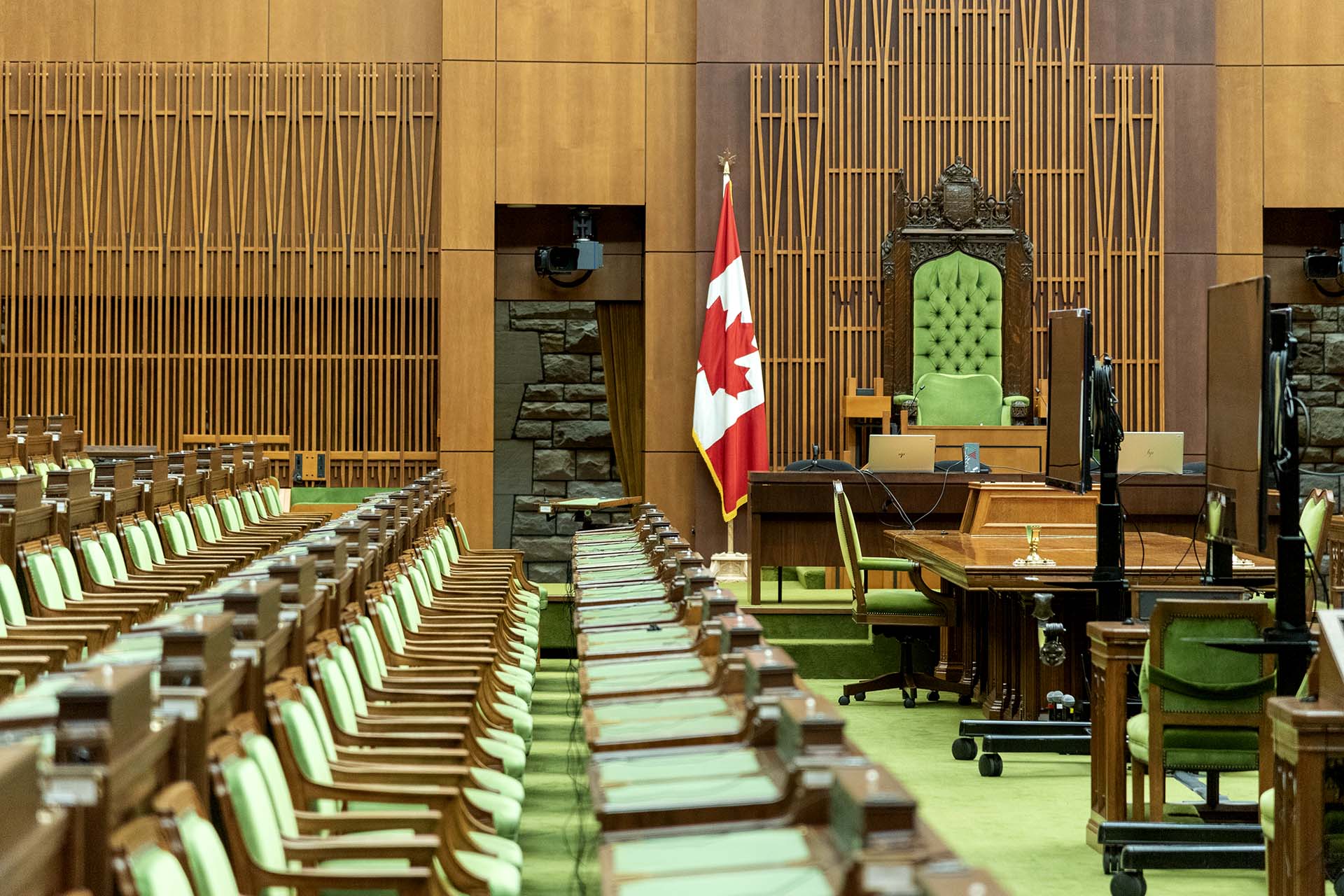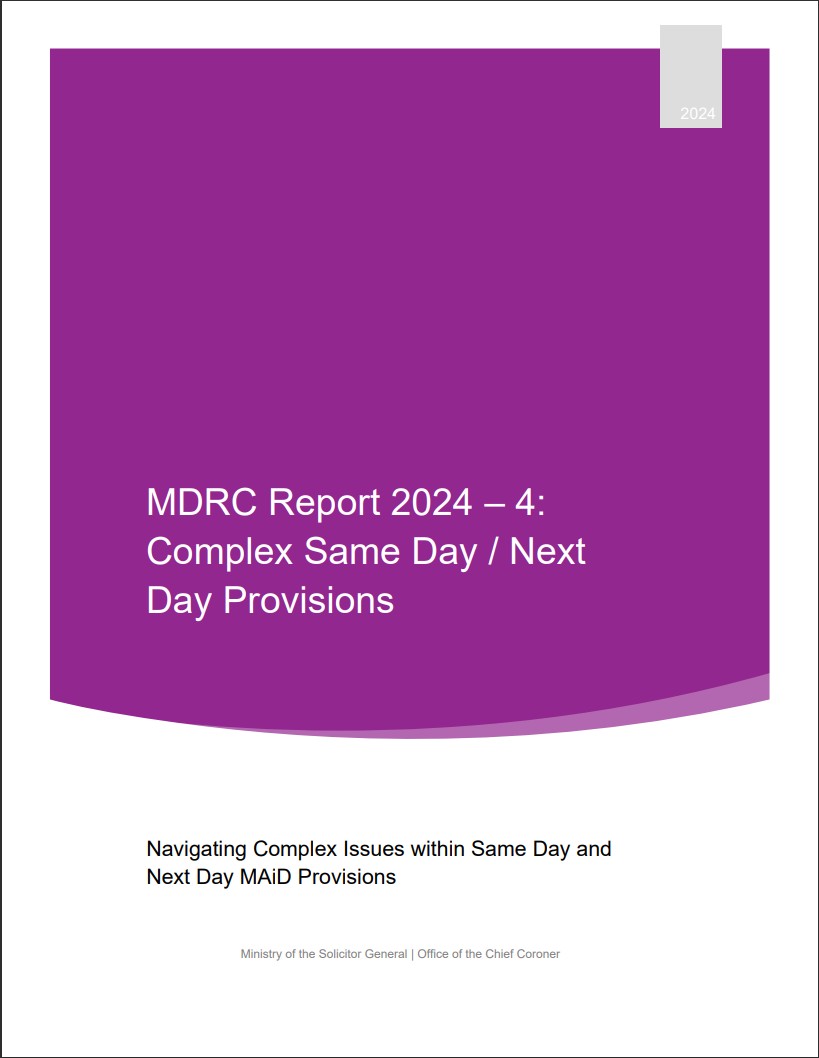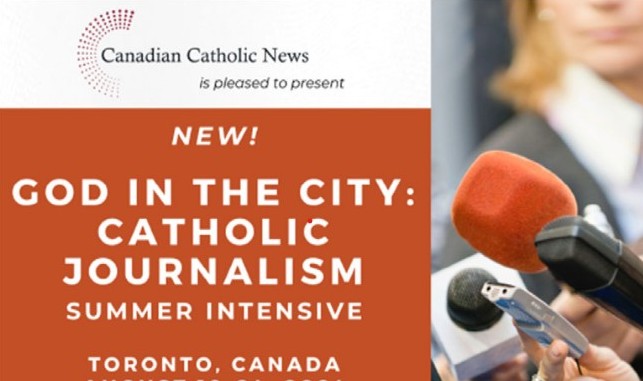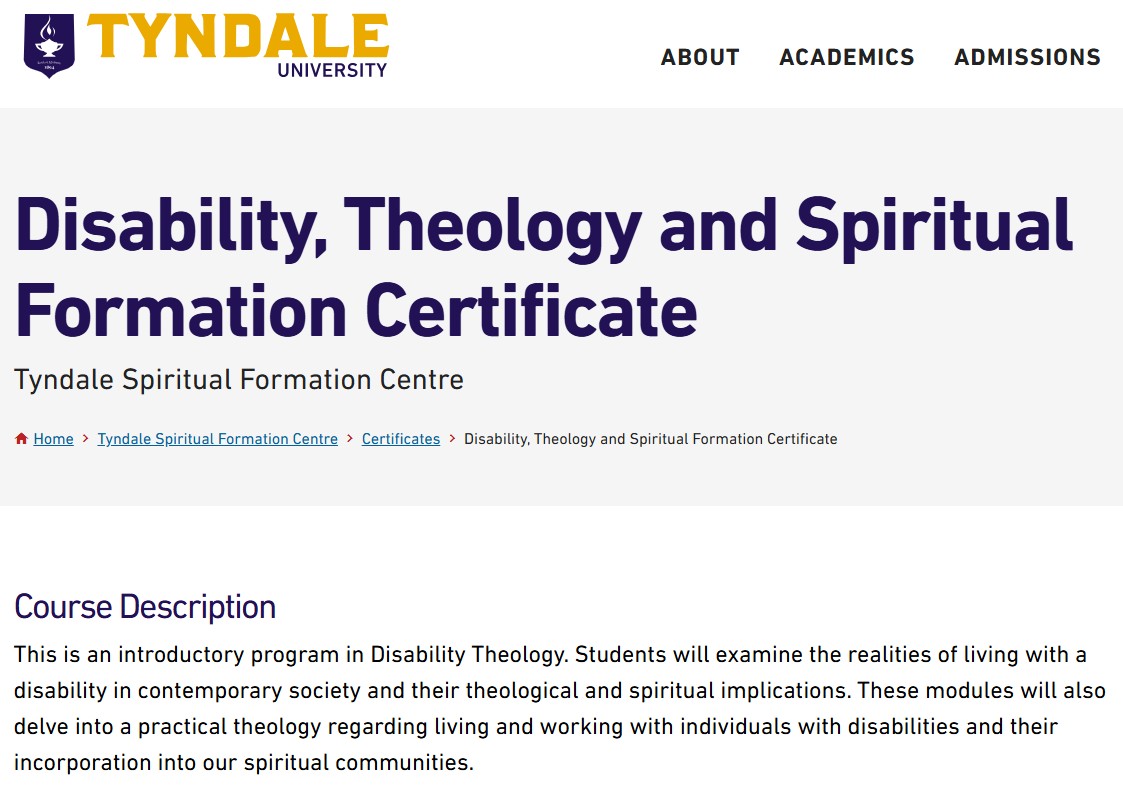Turning A New Page
Canada and many other jurisdictions have turned the page as new governments take office following recent elections. Changes in leadership can offer opportunities for new conversations, particularly as new legislative sessions begin. But old problems continue, including challenges in educational policies and administration and the sin of socially-assisted suicide. Shall we start the conversation?
In this issue:
- The Duty to Participate: New conversations with new leaders.
- Family, Community & the Common Good: Bishops ask educational response to culture of individualism & secularization
- Good Government: Return of the Parliament Brief
- Federal Legislation
- Ontario Provincial Legislation: Ministry control of school boards.
- Sanctity of Life: Provincial Report Questions Same-Day Assisted Suicides in Ontario
- Courses
- Events
In Good Conscience
Canada has a new prime minister, who attends Mass and sometimes speaks in the language of Catholic social teaching. Is it possible that we could start a conversation?

The Duty to Participate: beginning a new conversation.
Canada is not alone in having elected new leaders within the last year. Nor is it alone in having elected leaders who, like most human beings, are likely imperfect. But it does appear that Canada may face its best opportunity in years for beginning a respectful and democratic civic dialog, centred on Catholic values. Maybe its time for us to start talking to those we’ve elected to lead us.
Canada’s new Prime Minister Mark Carney has publicly acknowledged that he professes Catholicism, and he openly attended Pope Leo’s inauguration Mass – even going so far as to praise the Pope’s homily, and to explain to the press why he knelt during Mass. It also reported that he regularly “goes to Catholic church.”
It is also true that he has openly declared his unreserved support for abortion rights, perhaps even for their elevation to the status of protection under the Charter of Rights and Freedoms. This is obviously difficult for faithful Catholics to accept, particularly as abortion in Canada is legal for any reason, and practiced right up to the moment of birth.
It is a topic we should certainly take up with him.
On the other hand, he speaks Catholic when he wants to. It is reported, for example, that he once attended a Vatican seminar on the topic of building an economy that works for everyone, and that when he got home he wrote a book about how that might be done – a book that is framed in terms consistent with Catholic social teaching, and appears to be informed by it, even if it does not stress that fact.
The question we face is: do these things give us enough ground to at least try to start a respectful conversation, that includes both points of agreement and points of disagreement? We should perhaps reflect carefully on that, as recent history suggests that it might be unwise to wait on a better chance.
If we do want to start such a conversation, it would be well to start soon. Despite the fact that Mr. Carney has barely even begun to work at his new job, criticism is already flowing toward him, including unfortunately a measure of sharp personal criticism from Catholics. Left unchecked, this stream seems likely to sweep us right back down the drain of endless bickering and nagging, rather than constructive conversation, especially as it is sometimes difficult to discern legitimate Catholic grounds for complaint, as opposed to mere personal preferences.
For example, one charge frequently leveled at Mr. Carney, by Catholics and others, is that he is a globalist banker, a member of a “post-national management class.” This certainly sounds ominous, but is it necessarily damning? It’s clear the activities of many global bankers and managers are not aligned with Catholic thought. But is it not possible that some global bankers and managers might be good people, even Catholics, even if they are both bankers and managers at the same time? It would help if particulars of such complaints were be provided, but they too seldom are.
So we are left with the question “is it a sin, in and of itself, for a Catholic (or anyone else) to be a globalist?” It would seem not. Much seems to depend on what kind of globalism is intended, and how it is approached. For example, the original, largest and oldest global organization in the world is the Roman Catholic Church, which has used its worldwide reach to accomplish untold good, along with a few things that we likely could have done better.
As Pope Saint John Paul II told the Pontifical Academy for Social Sciences 24 years ago,
Globalization, a priori, is neither good nor bad. It will be what people make of it. No system is an end in itself, and it is necessary to insist that globalization, like any other system, must be at the service of the human person; it must serve solidarity and the common good.
One of the Church’s concerns about globalization is that it has quickly become a cultural phenomenon. The market as an exchange mechanism has become the medium of a new culture. 1 Many observers have noted the intrusive, even invasive, character of the logic of the market, which reduces more and more the area available to the human community for voluntary and public action at every level. The market imposes its way of thinking and acting, and stamps its scale of values upon behaviour. Those who are subjected to it often see globalization as a destructive flood threatening the social norms which had protected them and the cultural points of reference which had given them direction in life.
What is happening is that changes in technology and work relationships are moving too quickly for cultures to respond. Social, legal and cultural safeguards – the result of people’s efforts to defend the common good – are vitally necessary if individuals and intermediary groups are to maintain their centrality.2
It seems that concerns such as this are what we should focus on, rather than condemning ideas out of hand. And it would seem wise to start working now, speaking up and encouraging or correcting where necessary, and doing what we can to ensure that any globalist initiatives are established in responsible fashion, that they seek to do only that which is needed and appropriate, and that they are consistent with the principles of both solidarity and subsidiarity, rather than mere schemes for maximizing profit.
We could start by listening. For example, this is exactly where Mr. Carney’s book begins, in what sounds like close agreement with Saint John Paul. From the introduction to Value(s), for example:
These are the questions that this book seeks to explore. It will examine how our society came to embody Wilde’s aphorism – knowing the price of everything and the value of nothing. How by elevating belief in the market to an inviolable truth we moved from a market economy to a market society. And how we can turn this around… [to build an economy underpinned by the values and beliefs of]:
- dynamism to help create solutions and channel human energy;
- resilience to make it easier to bounce back from shocks while protecting the most vulnerable in society;
- sustainability with long-term perspectives that align incentives across generations;
- fairness, particularly in markets to sustain their legitimacy;
- responsibility so that individuals feel accountable for their actions;
- solidarity whereby citizens recognize their obligations to each other and share a sense of community and society; and
- humility to recognize the limits of our knowledge, understanding and power so that we act as custodians to improve the common good.3
Much will depend, obviously, on whether Mr. Carney actually tries to build such an economy, and how well he does with it, and how well his values and beliefs turn out to align with Catholic thought.
It seems like we might be better off trying to have collaborative input into this than to stubbornly refuse to play. Saint John Paul is already pointing the way:
A sound globalization, carried out in respect for the values of different nations and ethnic groupings, can contribute significantly to the unity of the human family and enable forms of cooperation which are not only economic but also social and cultural. Globalization must become more than simply another name for the absolute relativization of values and the homogenization of life-styles and cultures. For this to happen, Christian leaders, also in the commercial sphere, are challenged to bear witness to the liberating and transforming power of Christian truth, which inspires us to place all our talents, our intellectual resources, our persuasive abilities, our experience and our skills at the service of God, our neighbour and the common good of the human family.
Likewise the charge that Mr. Carney is a member of a new government-by-management class. Is not government, no matter its form, simply another word for management? It is true that as the world’s population has grown and come together, with cultures mingling, blending, and confronting one another more closely than ever before, the “management” imposed by our governments has grown ever more intrusive, our “personal space” shrinking further and further. That is deeply lamentable. But is it avoidable? If so, how? Farmers of the 1700s, for example, resented the encroachment of towns and government. Cowboys of the 1800s disliked fencing of the land, and railroads crossing their grasslands; railroad magnates and other capitalists of that and other eras disliked securities regulation. And I believe it would not be difficult to gather evidence that the inhabitants of North America at the time the Western techno-commercial culture arrived were not thrilled, either.
Few of us welcome the idea of over-management. But again, it would seem that the answer is probably not flat (and especially futile) rejection. Rather, a careful, principled, gathering, and democratic approach to a process that has already begun is perhaps called for, offering thoughtful, justified policy alternatives.
Perhaps we are called to wipe off our glasses and start reading a little more closely, paying attention not only to our fears but both the broad scope and specific details of proposals, bearing in mind always that we share this planet, standing before God with a vast number of other people, and look for opportunities that balance solidarity with subsidiarity, the common good with individual rights and responsibilities.
Do we really want to wait until we have a leader who is perfect in the eyes of everyone before we start that conversation? Mr. Carney appears to have brought us more reason for hope than any of his recent predecessors. It’s far from perfect, but would it not be a matter of prudent stewardship to try to work with it?
Try writing him a letter, telling him what you like and don’t like about his past and his plans for the future, so far as they have been announced. Copy your local MP and your provincial or territorial representatives. Invite them all to join us in reflecting on the prayer Pope Francis shared at the bottom of his encyclical Fratelli tutti.4
Notes:
- Emphasis in original.
- Address of the Holy Father John Paul II to the Pontifical Academy of Social Sciences, Friday, 27 April 2001 (https://www.vatican.va/content/john-paul-ii/en/speeches/2001/april/documents/hf_jp-ii_spe_20010427_pc-social-sciences.html)
- Carney, Mark, Value(s): Building a Better World for All, Signal Press, 2021 (pp. 3, 8-9)
- See this issue’s prayer at bottom.
Of Common Interest
Family, Community & the Common Good
Bishops Call for Catholic Educational Response to Culture of Individualism, Secularization
On the Feast of Saint Thomas Aquinas, the Catholic Bishops of British Columbia issued a Pastoral Letter on Catholic Schools1, recalling to the minds of parents, communities, staff, and parishes their proper roles in the mission of Catholic Schools to teach the whole person and promote faith and life shared in community.
Noting that Catholic schools carry out their mission in a world marked by an “unhealthy individualism” that often detracts from the vitality of the school-parish community and marginalizes faith as a reference point for life, the Bishops stressed the importance of teaching within the context of faith as a basis for the formation of wisdom. Schools were reminded to promote growth, rooted in Christ, in physical, emotional, moral and spiritual dimensions as well as the technical and practical.
The BC Bishops were echoed by Archbishop Frank Cardinal Leo of Toronto during Catholic Education Week.2 Lauding publicly-funded Catholic Schools as a “cherished gift,” Archbishop Leo called for “earnest renewal” of the Church’s commitment to the educational mission at hand, asking that Catholic schools “be places where hope flourishes, pleasing to the Lord and a testament to his life-changing promise.”
At least one Catholic observer praised the Bishops’ initiative but called for even deeper commitment:
Why are the bishops not making any reference to teaching students the Catechism of the Catholic Church? Where are the parents in demanding a good Catholic education for their children? In most Catholic schools, the religious part of the curriculum has been reduced to social justice projects, fundraising activities and current events. Students leave high school with hardly any serious knowledge of the Bible, the saints, the Catechism, the sacraments and the history of Catholicism in Canada. Catholic schools have been secularized by the larger culture. 3
1 https://www.rcdvictoria.org/news/pastoral-letter-on-catholic-schools
2 https://www.archtoronto.org/ko/outreach/news/archdiocesan/frank-cardinal-leo-message-for-catholic-education-week/#
3 https://everydayforlifecanada.blogspot.com/2025/04/canadian-bishops-of-british-columbia.html

Good Government: Democracy, Justice, & Peace
Parliament Brief
Sincere thanks to our monthly donors, who have enabled us to resume this wonderful tool for education.
Federal Parliament
With a new government and a Parliament recently returned to business, we have dedicated this issue’s Common Interest section to legislative proposals. We will endeavor to keep this section up to date.
The newly-elected Parliament took up business on May 26, 2025. Among the first items on the agenda was the introduction of a number of bills.
The House of Commons has passed one bill to the Senate for consideration. Four bills remain pending. All are government bills and all are on second reading.
The Senate has 31 bills pending. Bill C-202 has been passed by the House of Commons and is at first reading in the Senate. Bills S-201 through S-228 and S-1001 are Senate Public Bills.
House of Commons
Bill C-202, to protect prices of and quotas for dairy products, poultry and eggs was passed by the House with little debate and awaits reading in the Senate. Bills C-2, C-3, C-4 and C-5 passed first reading and await second reading in the house. (https://www.parl.ca/legisinfo/en/legislation-at-a-glance)
- C-202, to amend the Department of Foreign Affairs, Trade and Development Act.
Private Member’s Bill sponsored by Yves-Francois Blanchet member for Beloeil-Chambly. (https://www.parl.ca/legisinfo/en/bill/45-1/c-202)
Passed by House and awaiting first reading in Senate, as of June 5, 2025.
This Act to protect prices and quotas of dairy products, poultry or eggs was introduced and passed first reading on May 29, 2025; and by unanimous consent passed second reading, committee consideration, report and third reading on June 5. It now awaits action by the Senate.No debate on the amendment is reported.
- C-2, Strong Borders Act
Government Bill sponsored by Minister of Public Safety. (https://www.parl.ca/DocumentViewer/en/45-1/bill/C-2/first-reading)
At second reading in House, as of June 3, 2025.
In addition to technical amendments relating to law enforcement, the Act proposes:
- Expands the authority of Canada Post to open mail, including letters
- Expands duties of the Coast Guard to include activities related to security, and authorizes collection, analysis, and disclosure of information by the Coast Guard.
- Authorizes the Minister of Citizenship and Immigration to disclose, for certain purposes and subject to any regulations personal information under the Ministry’s control.
- Amends authorities of the Ministry of Citizenship and Immigration relating to review of claims for refugee protection.
- Amends the Proceeds of Crime (Money Laundering) and Terrorist Financing Act to increase monetary penalties for certain criminal offenses.
- Amends the Sex Offender Information Registration Act to revise circumstances under which sex offenders’ are required to report and the information that must be provided, and authorizes recording of sex offenders’ physical characteristics.
- Amends the Criminal Code to facilitate access to information that will assist in investigation of federal offense, specifies circumstances under which police may obtain evidence in emergencies, and allows judges to authorize police to request telecommunications (e.g. internet) service providers to produce content and subscriber date.
- Allows the Minister of Justice to cooperate with other agencies, including foreign agencies, to compel disclosure of information relating to telecommunications (e.g. internet) content or service providers.
- Permits collection and use by specified persons and entities of personal information without individuals’ knowledge or consent for the purpose of detecting or deterring money laundering, terrorist activity, or sanctions, “or for a consistent purpose.”
Several members expressed concern about the breadth of powers being accorded to law enforcement officers. For example, Member Michelle Garner (Conservative, Calgary Nose Hill) noted that if passed, the bill:
would allow CSIS, police and peace officers to demand personal info from online service providers without a warrant based only on vague suspicions of potential crime or legal breaches of any act of Parliament. Whether or not a Canadian uses an online service, where they use it and when they use it are personal information, and the government has not provided a charter statement for the same.
With Bill C-2, combined with Bill C-63, the government could target whatever it deems to be spreading hateful content. Bill C-2 would combine with Bill C-63 to essentially form Voltron-type censorship. The government has not indicated what policy concerns, aside from vague references to security, these provisions are needed for. These snooping provisions are a massive poison pill that should not have been included in this bill.
Minister Anandasangaree, the bill’s sponsor, replied that:
The issue around lawful access requires modernization in Canada. We are the only Five Eyes and G7 country that does not have a lawful access regime. Every other country in our category has provisions to ensure that as new technology emerges, new techniques are available for law enforcement. Having said that, this bill does not violate the civil liberties or rights of individual Canadians. It is subject to judicial oversight. This bill was only introduced two days ago. There will be a charter statement coming, and there will be a robust debate on this issue.
- C-3, to amend the Citizenship Act
Government Bill sponsored by Minister of Immigration, Refugees and Citizenship. (https://www.parl.ca/DocumentViewer/en/45-1/bill/C-3/first-reading)
At second reading in House, as of June 5, 2025.
Among other things, the Act proposes:
- To ensure that citizenship is conferred on persons born to Canadian parents outside Canada; and to persons born outside Canada after the first generation, on or after the coming into force of the amendment enactment, to a parent who is a citizen and who had a substantial connection to Canada before the person’s birth.
- Confer citizenship on persons adopted by Canadians.
No debate on the Act is reported.
- C-4, Making Life More Affordable for Canadians
Government Bill sponsored by Minister of Finance and National Revenue (Champagne). (https://www.parl.ca/legisinfo/en/bill/45-1/c-4)
At second reading in House, as of June 6, 2025.
Among other things, the Act proposes:
- To amend the Income Tax Act to reduce the marginal personal income tax rate on the lowest bracket by ½% to 14.5% for the 2025 taxation year and to 14% for the 2026 and subsequent tax years.
- To amend the Excise Act and related Regulations to implement a temporary GST new housing rebate for first-time home buyers.
- To repeal Part 1 of the Greenhouse Gas Pollution Pricing Act and the Fuel Charge Regulations.
- To amend the Elections Act to make changes to requirements for political parties’ policies for protection of personal information, namely releasing parties from the requirement to disclose their privacy policies to Elections Canada, while requiring them to state their policies clearly online, and allowing them to use personal information in accordance with their parties.
In debate,
- Minister of Finance & Revenue Francios-Philippe Champagne highlighted the proposed elimination of HST for the first $1M in purchase price for first-time home buyers, and reduction of HST for the next $500,000, offering savings up to $50k for a first home. The provision complements the existing first-home tax savings plan and RRSP home buyers’ plan. In addition, the government undertakes to develop a ‘credible plan’ to build more homes, ensuring that the plan provides a “true team Canada approach” to homebuilding.
- Several parties questioned the wisdom of passing the bill in absence of a budget or budget proposal.
- Conservative MP Garnett Genuis (Sherwood Park – Fort Saskatchewan) called for removal of barriers to employment, such as payroll taxes and blockage of major private-sector projects, such as natural resources extraction. He also noted that removal of consumer carbon taxes but retention industrial carbon taxes would result in passthrough to consumers anyway.
- Conservative MP Kelly McCauley (Edmonton West) noted that the proposed tax cut works out to approximately $1.50 a day, while the government’s recent main estimates call for allocation of an additional extra $26 billion for private-sector consultants such as McKinsey, GC Strategies, and others. The amount added for consultants works out to about $1,400 per household, while the middle-class tax cut would be about $800 per household.
- NDP MP Lori Idlout (Nunavut) questioned why an act aimed at ameliorating the cost of living would include proposed amendments of the Elections Act.
- C-5, Free Trade and Labour Mobility in Canada & Building Canada Act
Government Bill sponsored by the President of the King’s Privy Council for Canada and Minister Responsible for Canada-US Trade.
(https://www.parl.ca/legisinfo/en/bill/45-1/c-5)
Introduced and passed to second reading in House as of June 6, 2025.
Among other things, the Act proposes:
- Establishment of a statutory framework to remove federal barriers to the interprovincial trade of goods and services and to improve labour mobility within Canada. In the case of goods and services, including recognition of goods or services that meet provincial or territorial requirements as meeting comparable federal requirements pertaining to the interprovincial movement of the good or provision of the service, and recognition of provincial and territorial authorizations to practise occupations and for the issuance of comparable federal authorizations.
- Processes for expediting projects covered by the Building Canada Act
No debate had yet taken place.
Senate
As of June 9, the Senate has 31 bills pending. Bill C-202 has been passed by the House of Commons and is at first reading in the Senate. Bills S-201 through S-228 and S-1001 are Senate Public Bills.
(https://www.parl.ca/legisinfo/en/legislation-at-a-glance)
- C-202, to amend the Department of Foreign Affairs, Trade and Development Act.
Private Member’s Bill sponsored by Yves-Francois Blanchet member for Beloeil-Chambly. (https://www.parl.ca/legisinfo/en/bill/45-1/c-202)
Passed by House and awaiting first reading in Senate, as of June 5, 2025.
This Act to protect prices and quotas of dairy products, poultry or eggs was introduced and passed first reading on May 29, 2025; and by unanimous consent passed second reading, committee consideration, report and third reading on June 5. It now awaits action by the Senate.No debate on the amendment is reported.
- S-2, to amend the Indian Act (to provide new registration entitlements)
Senate Government Bill sponsored by Senator Marc Gold.
(https://www.parl.ca/legisinfo/en/bill/45-1/s-2)
Second reading in the Senate, as of May 29, 2025.
Among other things, this bill provides new entitlements to registration in the Indian Register in response to the challenge of certain provisions of the Act under the Canadian Charter of Rights and Freedoms in Nicholas v. Canada (Attorney General) and that the persons who have become so entitled also have the right to have their names entered in a Band List maintained in the Department of Indigenous Services.
- Bills S-201 through S-228 and S-1001 are Senate Public Bills concerning:
- S-201: a national framework on sickle cell disease.
- S-202: warning labels on alcoholic beverage containers.
- S-203: prohibition of promotion of alcoholic beverages.
- S-204: a national framework on heart failure.
- S-205: warning labels on alcoholic beverage containers.
- S-206: national framework for basic liveable income.
- S-207: amendment of the criminal records act.
- S-208: amendment of the criminal code to protect independence of the judiciary.
- S-209: restriction of young people’s access to pornography online.
- S-210: Ukrainian Heritage Month.
- S-211: a national framework for sports betting advertisements.
- S-212: a national strategy for youth and children in Canada.
- S-213: amendment of the Canada Elections Act regarding collection and use of demographic information.
- S-214: a framework for disposal of foreign state assets.
- S-215: National Immigration Month.
- S-216: protection of the Chignecto Isthmus Dykeland System.
- S-217: national framework for basic liveable income.
- S-218: reporting by CRA of unpaid personal income tax.
- S-219: establishment of Judicial Independence Day.
- S-220: designation of March as National Hellenic Heritage Month.
- S-221: recognition of the Canada jay as the national bird of Canada.
- S-222: amending the Elections Act to provide for referenda.
- S-223: amendment of the RCMP Act.
- S-224: amendment of the National Public Prosecutions Act.
- S-225: establishment of National Thanadelthur Day.
- S-226: establishment of Jury Duty Appreciation Week.
- S-227: establishment of Arab Heritage Month.
- S-228: amendment of the Criminal Code regarding sterilization procedures.
- S-1001: application of Gore Mutual Insurance Company to be continued as a body corporate under the laws of the Province of Quebec.
Sources:
- Parliament of Canada website, https://www.parl.ca/legisinfo/
Ontario Legislature
- Bill 33, Supporting Children and Students Act, 2025
Government Bill sponsored by Education Minister Paul Calandra (PC, Markham-Stouffville).
(https://www.ola.org/en/legislative-business/bills/parliament-44/session-1/bill-33)
Second Reading, debate adjourned, June 5, 2025.
The Act proposes:
- Amendment of the Child, Youth, and Family Services Act to provide stronger provincial oversight of children’s aid societies, including adding circumstances in which societies licensed for Residential support are required to provide information about the provincial ombudsman, and to require all children’s aid societies to make their bylaws available to the public.
- Amendment of the Education Act:
- to broaden the Minister’s authority to investigate school board affairs in circumstances which cause the Minister “concerns about a matter of public interest,” including “whether boards, board members and directors of education are carrying out their duties under the Act in an appropriate manner.”
- To remove a requirement that the Lieutenant Governor in Counsil authorize the Minister to assume control before taking over school boards that fail to comply with directions of the Minister.
- To require boards to work with local police services to provide them with access to school premises, permit them to participate in school programs, and implement school resource officer programs.
- To give the Minister power to establish policies and guidelines respecting school board expense policies.
- To give the Minister control over naming or renaming of schools.
- Amendment of the Training, Colleges, and Universities Act to:
- Requires colleges of applied arts and technology and publicly-assisted universities to assess applicants based on merit and to publish the criteria and process to be used for assessment into programs of study.
- To develop and implement research security plans.
- Authorize regulations governing fees that colleges of applied arts and technology or publicly-assisted universities may charge to students or require students to pay.
- Blaming school boards for wasteful spending appeared to be a diversion from a government that has cut funding for education, said Chandra Pasma, MPP for Ottawa West-Nepean and shadow education minister for the New Democratic Party. “While this government’s been in power, they have cut spending to the point where $6.35 billion have come out of the education system over the past seven years,” she said, referring to recent research from the Canadian Centre for Policy Alternatives. (https://www.cbc.ca/news/canada/ottawa/school-boards-question-wasteful-spending-rationale-behind-new-education-bill-1.7547591)
Of Common Concern

Sanctity of Life: Provincial Report Questions Same-Day Assisted Suicides in Ontario
According to the Province of Ontario, in January 2024 the office of its Chief Coroner established, as part of an adjustment “reflecting the more mature state” of Socially-Assisted Death (SAD)1 practice in Ontario, a new Death Review Committee (MDRC) comprised of 16 members from across multiple disciplines (law, ethics, medicine, social work, nursing, mental health and disability experts, and a member of the public) to provide “advisory support” to already-existing SAD oversight measures in Ontario. The committee is mandated to provide recommendations and guidance that may inform the practice of SAD through the evaluation and discussion of topics, themes, and trends identified by SAD review teams (MRTs).”
The goal of the MDRC is identified as providing multidisciplinary expert review of SAD deaths in Ontario with legislative, practice, health, social, and/or intersectional complexities identified through the already-existing oversight and review process, with a goal “to support quality practice and the safety of patients and [SAD] practitioners.” This goal is to be accomplished “through the dissemination of reports.”
These reports are meant to include, “where possible and appropriate, a diversity of thought and perspectives from committee members,” without aiming to establish consensus. Opinions of members are not collated or counted; rather qualifiers such as “few, some, many, most” are used to express the extent of support by committee members.
A recent MDRC Report2 raised concerns with several assisted suicides “provided” within 24-48 hours of request. Each of the cases involved circumstances that called the effectiveness of the consent into question, such as withdrawal of earlier requests and statements of reservation on spiritual grounds; disagreement among SAD assessors and “providers”; reliance on virtual assessments rather than in-person consultation; possible undue influence by family members; and unavailability of a preferred options such as palliative care.
Church Teaching:
- Sanctity of Life: the Church proclaims the sanctity of human life, from conception to natural death.
We care about the sanctity of life because the entire purpose of each soul God endows with life is to find its way back to God by loving God and caring for all the souls God has placed around it, using all the time and talents that have been entrusted to us to seek God in heaven, our hearts, and each other. Voluntary termination of life any time between conception and natural death necessarily frustrates that purpose.Even when we are disappointed, ill, or in pain we are meant to accept our challenges, offering our suffering to God in the knowledge that this life is passing and that we are intended for greater things. It’s also important to remember that our sufferings and weaknesses offer others the opportunity to help one another, accompanying each other through all phases of life.
SAD is clearly contrary to these purposes.
- Truth, Freedom, Justice, and Charitable Love. These four fundamental values of Catholic teaching offer rich ground for reflection in the context of birth, life, and death.
Points to Ponder:
- When patients are weak, worn out, in pain or distress, confused and not thinking clearly, alone and facing death, are they typically considered to be in condition to make wise, well-considered decisions regarding the culmination of their lifetimes’ work? When decisions are pushed upon them in such conditions, is their consent really sincere or effective?
- What happens when SAD or “MAiD” assessors disagree with one another, or with SAD “providers?” How is a decision reached? Given the sharp distinction between life and death, is compromise possible? If not, what would a just, loving, charitable, wise, or prudent decision look like?
- Clearly the responsibility of SAD assessors and “providers” is immense; the line between a consented and an unconsented killing can be very thin. What happens when an assessor or “provider” crosses the line between a true consent into something that looks more like a decision in favour of bureaucratic or organizational efficiency, or maybe even something worse?
- How are SAD assessors and “providers” chosen, and reviewed? What happens when they make unjustifiable choices that result in the homicides of other people?
- The table below is taken from MDRC Report 2024-02. It purports to show underlying conditions that were relied upon in the SAD process to justify government-inflicted homicides for which responsibility has been distributed among all members of society. Note that separate lines are provided for “Complex Chronic,” “Musculoskeletal”, and “Autoimmune” conditions. In that case, what conditions are covered by the 14 “Other” cases listed on the 4th line? If authors of the report were willing to devote lines to causes with single or no deaths, why could not the 14 “other” cases be defined?

1NOTE: Federal and Provincial authorities identify Socially-Assisted Death practices as “medical assistance in dying, or “MAiD”. Catholic Conscience prefers the more accurate acronym “SAD”.
2 MDRC Report 2024-4: Complex Same-Day / Next Day Provisions, accessible at https://macdonaldlaurier.ca/wp-content/uploads/2025/02/MDRC-Report-2024.4_Same-Day-Next-Day-Provisions_Final.pdf. Catholic Conscience thanks the Macdonald – Laurier Institute for making the report available to the public.
Events

God in the City: Summer Intensive Course in Catholic Journalism
The Canadian Catholic News is offering an in-person intensive experience of its popular online course, “Telling Truth in Charity: Introduction to Catholic Journalism” in Toronto, Aug. 10-16, 2025. Participants will benefit from one-on-one mentoring with nationally and internationally recognized Catholic Journalists, and work completed in the course will be published at the end of the seminar. Registration and further information are available at https://canadiancatholicnews.ca/journalism/summerintensive/.

Certificate Course in Disability Theology
Dr. Andrew Barron will teach a Certificate course in Disability, Theology Spiritual Formation through Tyndale College in Toronto this fall, starting in October and continuing through April 2026. Students will examine the realities of living with a disability in contemporary society and their theological and spiritual implications. Modules will also delve into a practical theology regarding living and working with individuals with disabilities and their incorporation into our spiritual communities. Registration and further information are available at https://www2.tyndale.ca/tsfc/certificates/disability-theology-spiritual-formation
Election Guides
Updated election guides for the several elections included in the flurry of the last 12 months are in process. First off, a guide to this year’s election in Newfoundland & Labrador should be posted soon. We will continue to post and update guides as promptly as we can. If you don’t see a desired jurisdiction in the list, or have other suggestions, please us know: info@CatholicConscience.org.
| Election Date | Jurisdiction | Type | Notes |
| 2025 10 14 | Newfoundland & Labr. | Provincial | Target posting: June 2025 |
| 2025 10 25 | Nunavut | Territorial | Target posting: July 2025 |
| 2025 11 03 | Yukon | Territorial | Target posting: July 2025 |
| 2026 10 05 | Quebec | Provincial | Target posting: June 2025 |
| 2026 11 03 | United States | Federal | Target posting: March 2026 |
Prayer

A Prayer to the Creator
As begin the process of trying to understand our new leaders, let’s offer this prayer from Pope Francis, which he shared at the bottom of Fratelli tutti:
Lord, Father of our human family,
you created all human beings equal in dignity:
pour forth into our hearts a fraternal spirit
and inspire in us a dream of renewed encounter,
dialogue, justice and peace.
Move us to create healthier societies
and a more dignified world,
a world without hunger, poverty, violence and war.
May our hearts be open
to all the peoples and nations of the earth.
May we recognize the goodness and beauty
that you have sown in each of us,
and thus forge bonds of unity, common projects,
and shared dreams.
Amen.
Source:
Donate

We promise to put your gift to work.
Every election cycle we grow.
Your gift will help us keep up.
Catholic Conscience is a registered Canadian charity, Registration no. 701256521RR0001.
To make things easy, we work with CanadaHelps. You will receive a tax receipt immediately and with our thanks.



